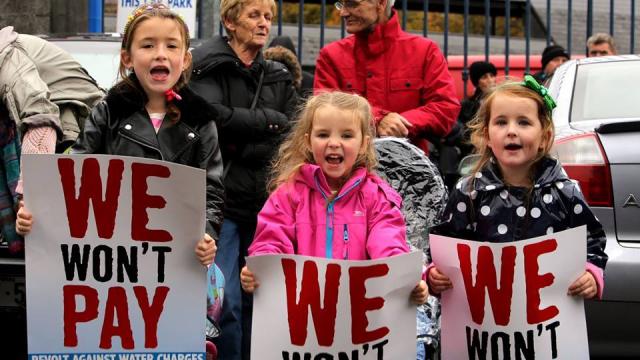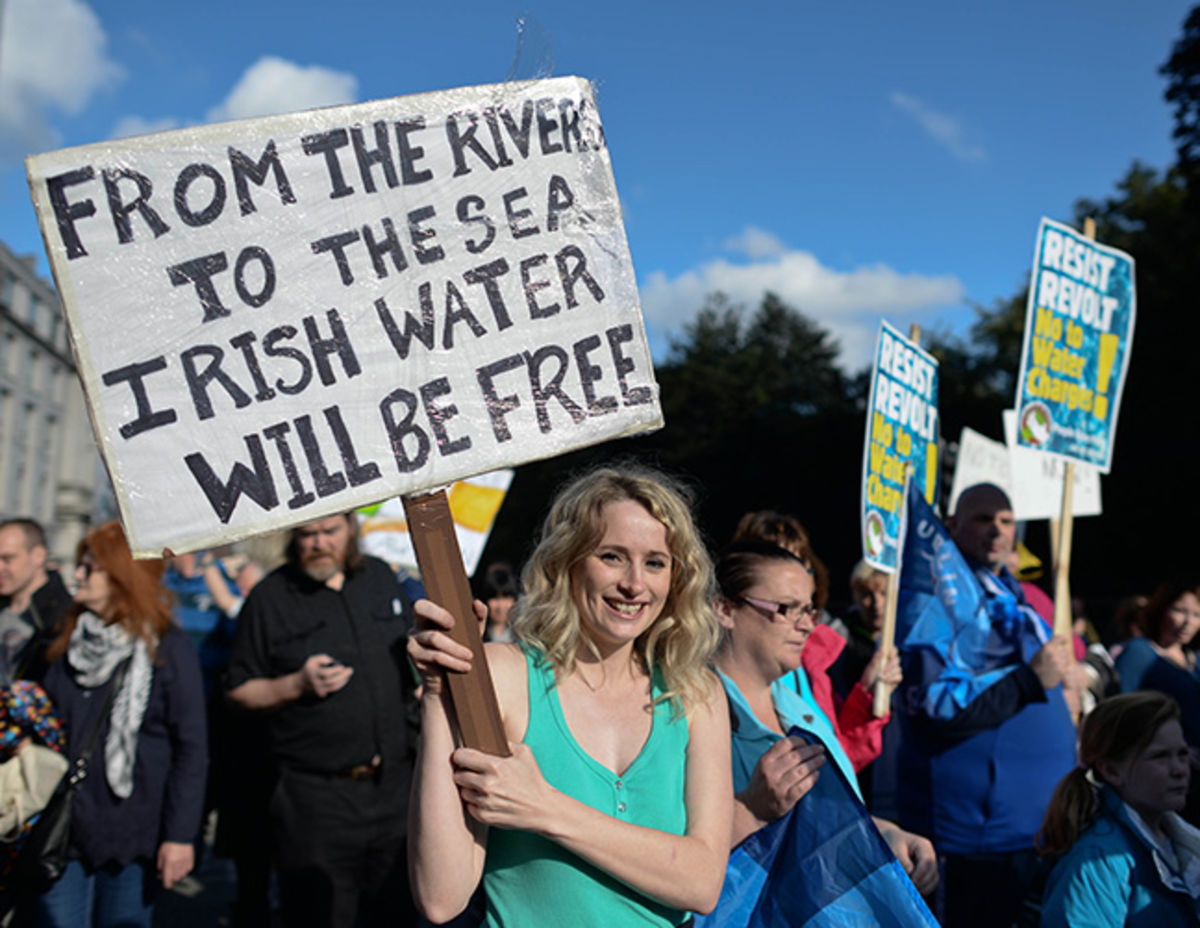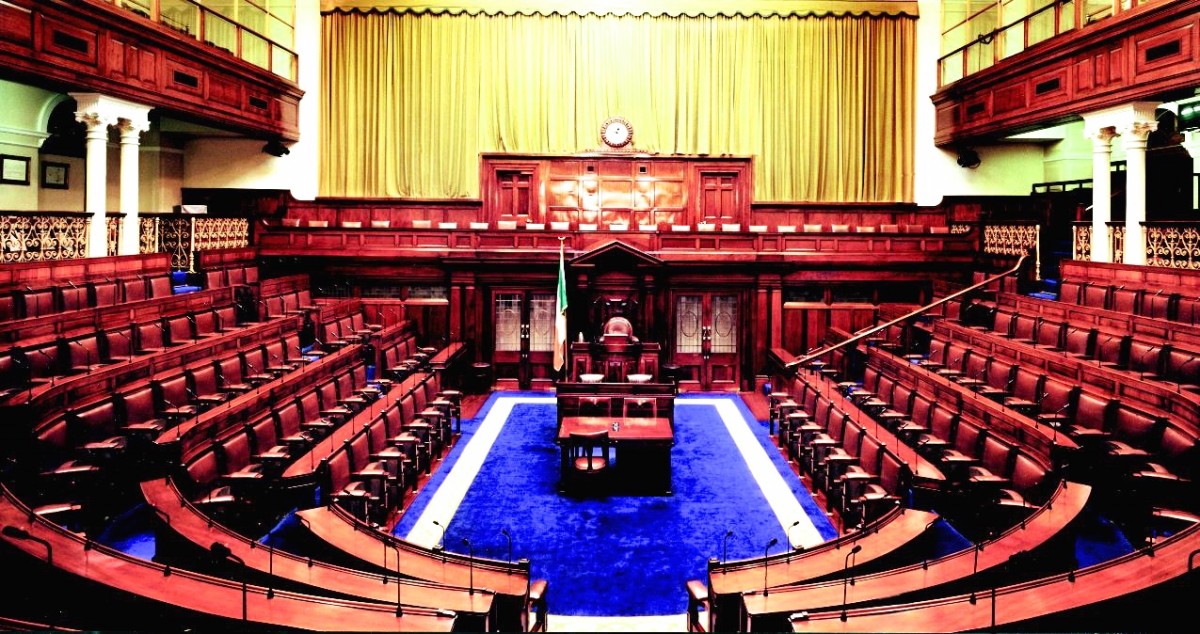
Tens of thousands of demonstrators opposed to the introduction of water charges in Ireland surrounded the country’s parliament bringing Dublin to a near standstill.
A small number of protesters clashed with police outside the Dáil on Wednesday afternoon, with at least two men arrested, the Garda Síochána said.
Coins, stones and plastic bottles were hurled at police lines and one Garda officer was taken to hospital after being struck in the face by a missile. The large crowds caused traffic chaos and most of central Dublin’s streets were brought to a standstill.
The Garda estimated that about 30,000 people took part in the protest, while the Europe-wide protest group Right2Water said the figure was closer to 100,000.
The overwhelming majority who attended took part in a peaceful show of opposition to the charges. By late afternoon, however, about 1,000 demonstrators were still blocking O’Connell bridge, leading to Dublin’s main thoroughfare.
Despite exiting the international bailout last year, a growing economy and falling unemployment, the introduction of water charges has proved to be the potentially lethal issue that could doom the current Fine Gael-Labour coalition in the 2016 general election. Both ruling parties’ fortunes have plummeted in recent opinion polls, with Sinn Féin and independents gaining most support from the public ire over the water charges.
Government ministers appeared on radio and television stations to push home the message that the charges would not be abolished.
Paudie Coffey, Ireland’s junior environment minister, said the government had already revised and lowered the water rates, which will cost €1.15 (£0.90) a week for a single household or €3 for a multiple-person household.
“That’s for the provision of drinking water but also to pay for the disposal and treatment of raw sewage,” the minister said.
But at the main rally at the back of government buildings in Dublin’s Merrion Square, Sinn Féin’s deputy leader, Mary Lou McDonald, told the crowd that the revised charges were not enough to end public anger over the issue.
“They thought that by giving minor concessions that the people of this country would be bought off,” McDonald said. “They were wrong.”
Paul Murphy, a leftwing TD, or Dáil deputy, with the Anti-Austerity Alliance, called for a campaign of non-payment of water charges when the first bills arrive in April. Murphy, who won a Dáil seat in a Dublin byelection in October over his opposition to water charges, said the size of the protest on a freezing cold day had exceeded his expectations.
3 WAYS TO SHOW YOUR SUPPORT
- Log in to post comments
















